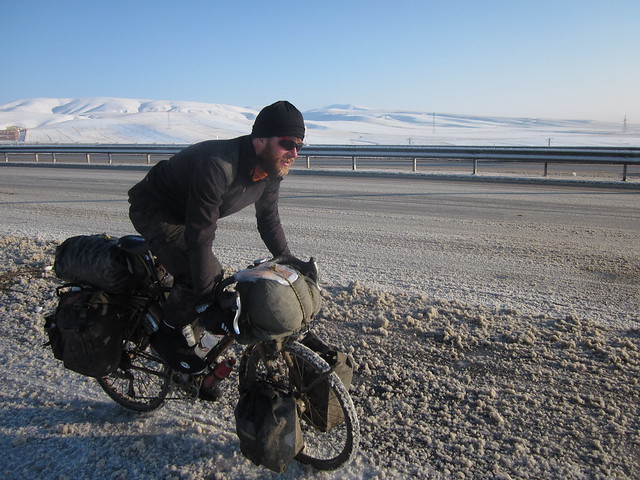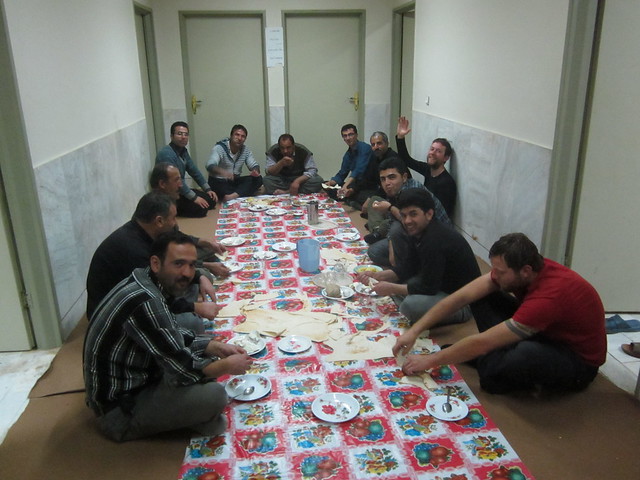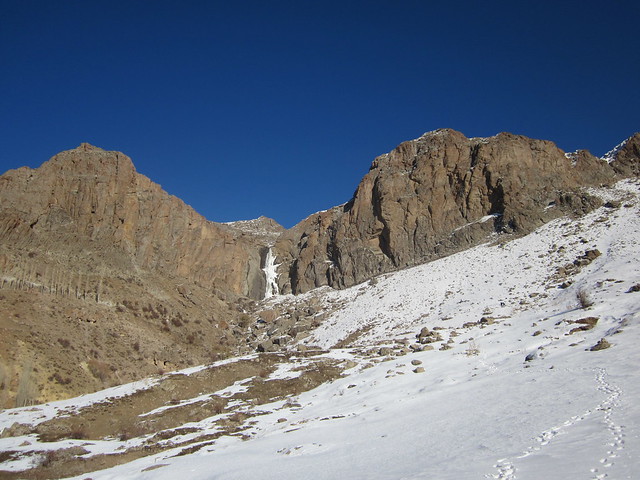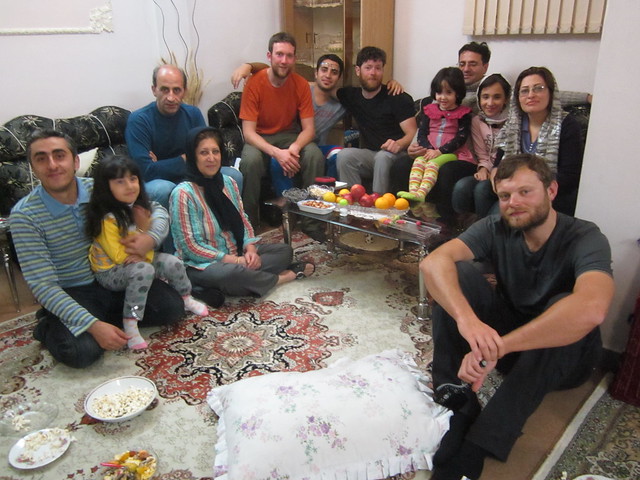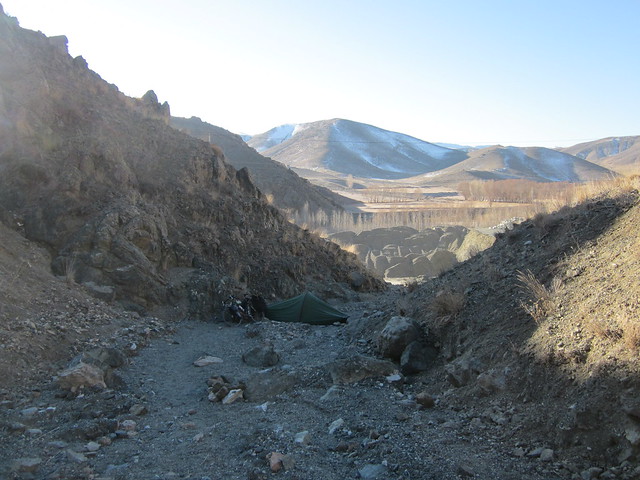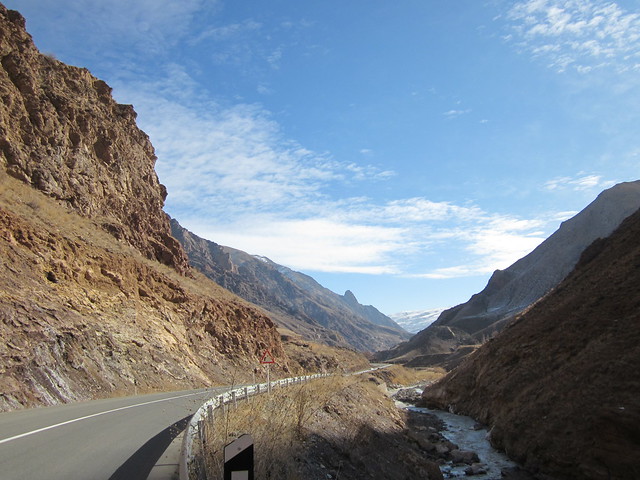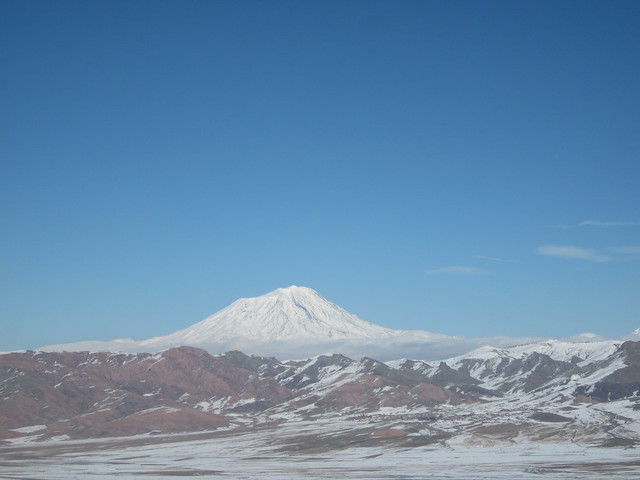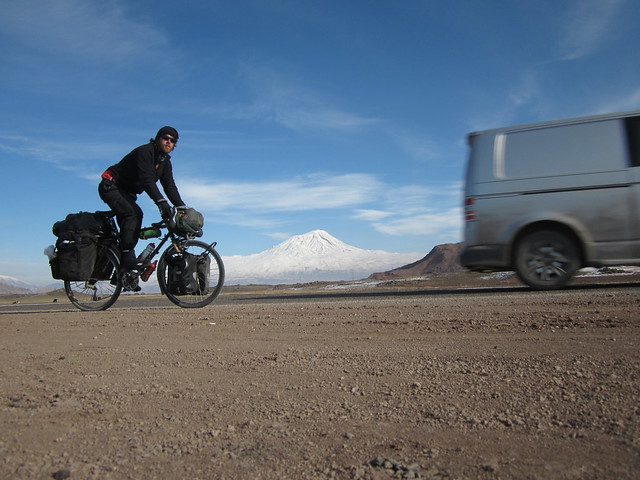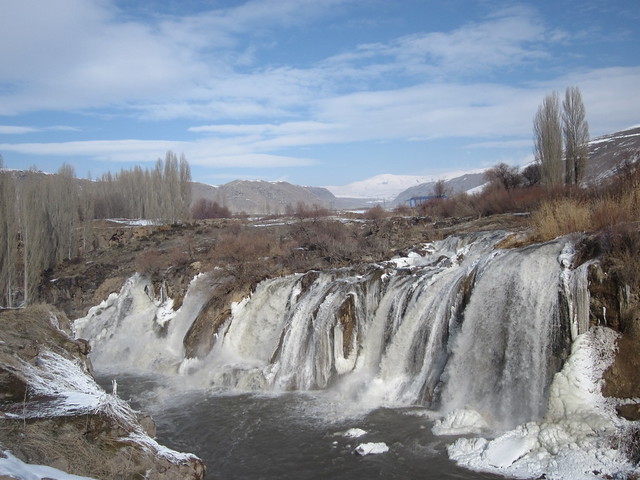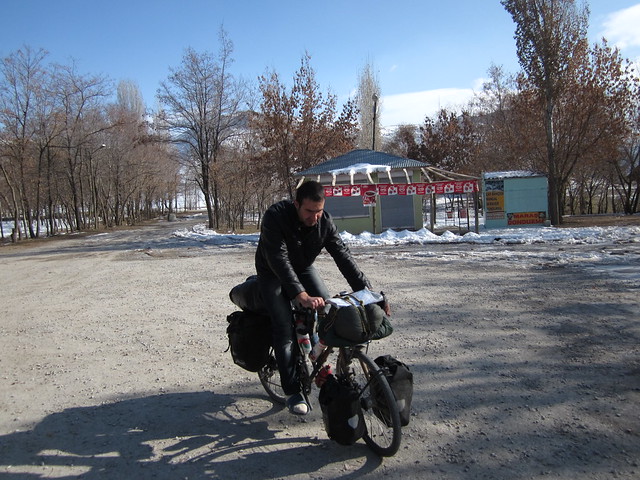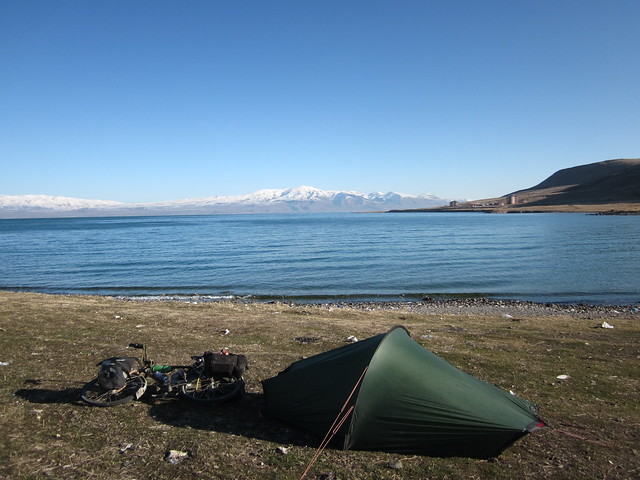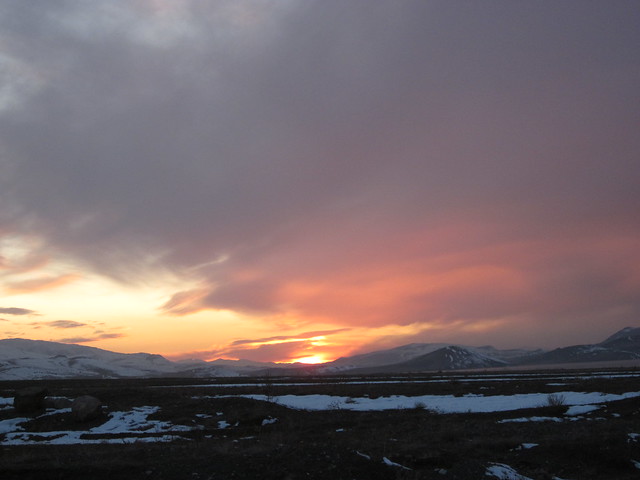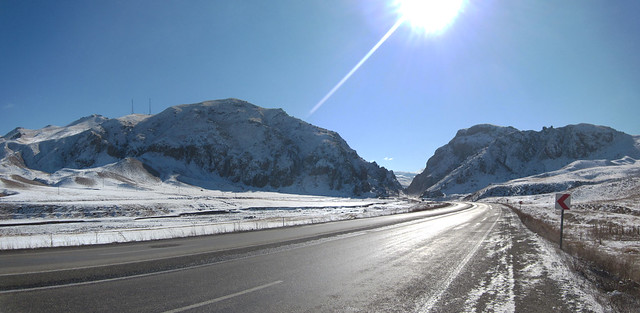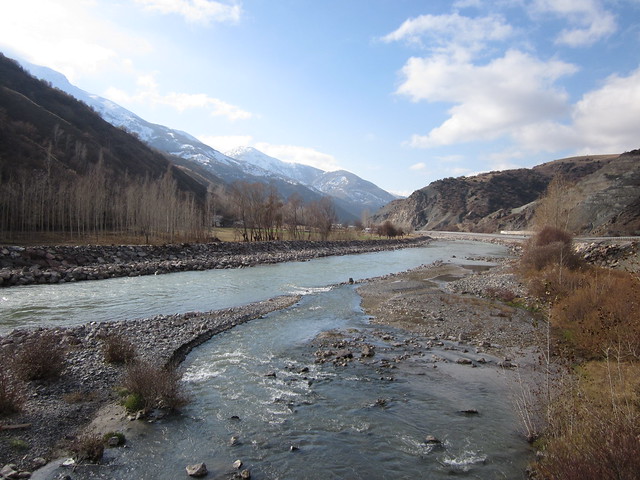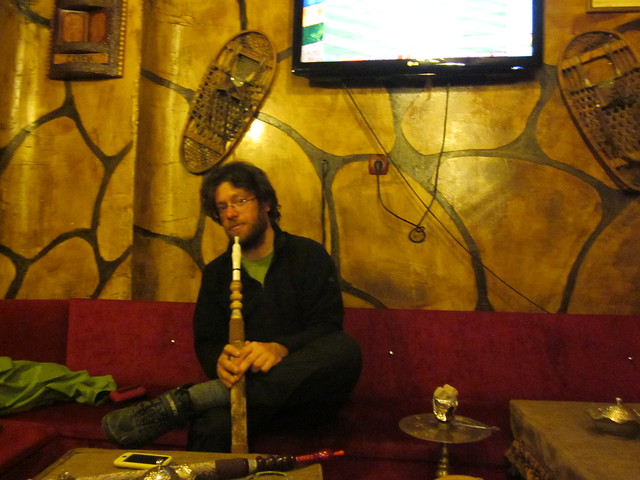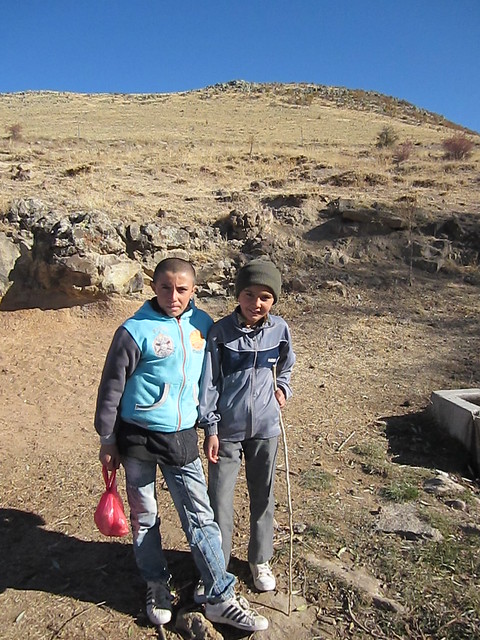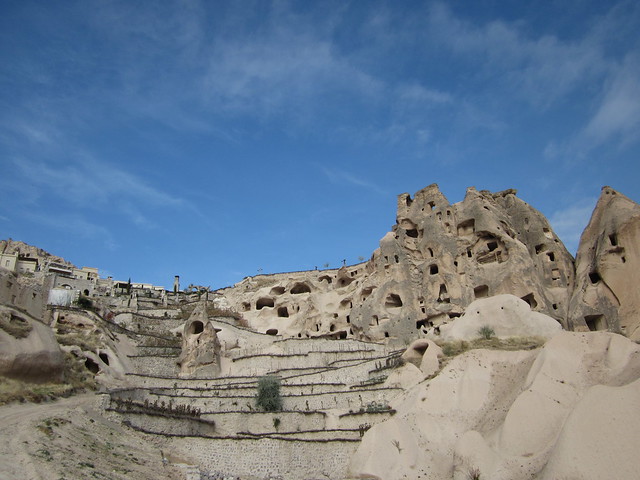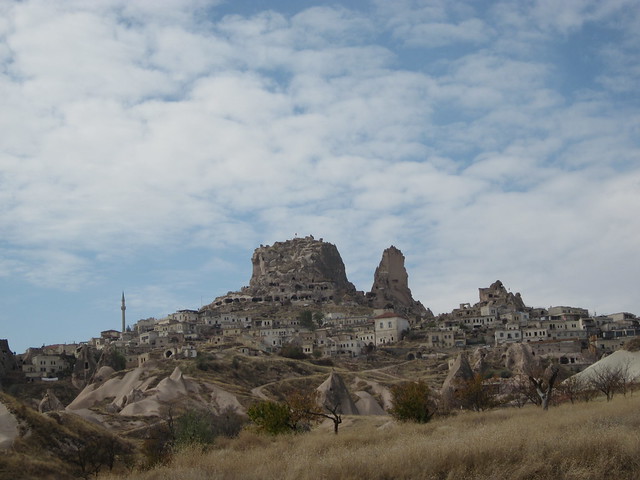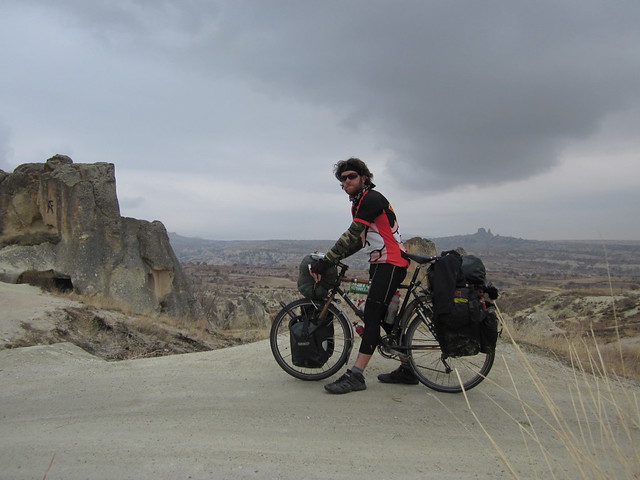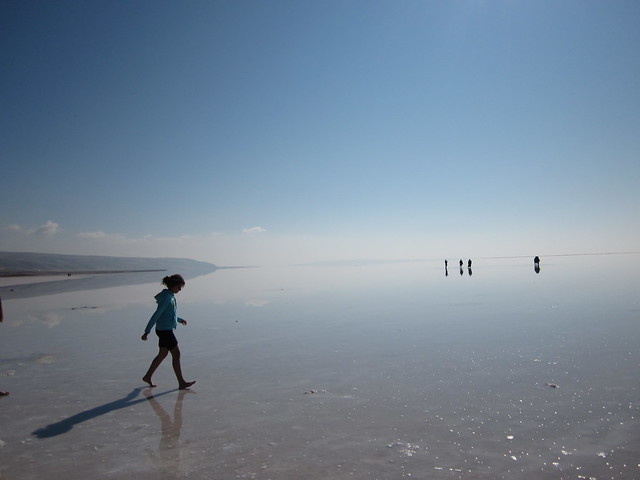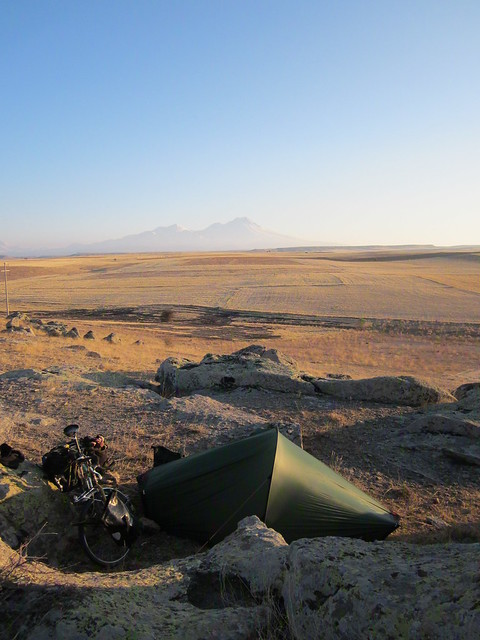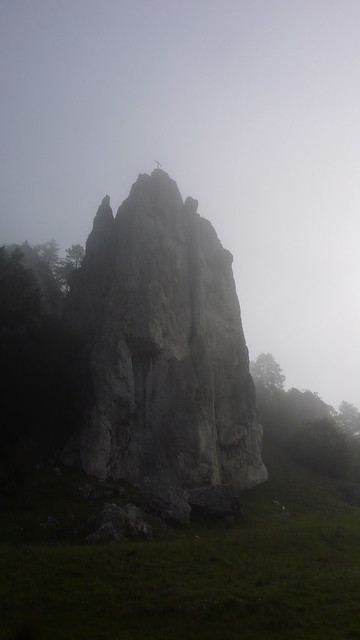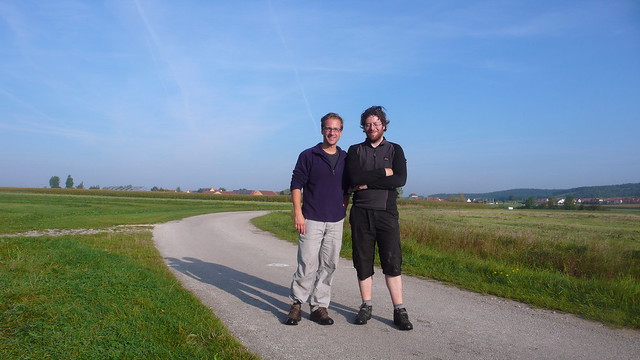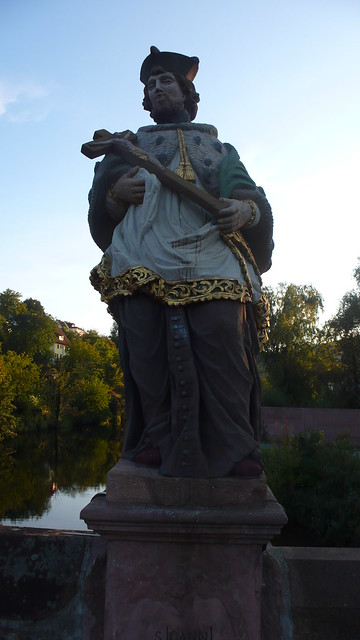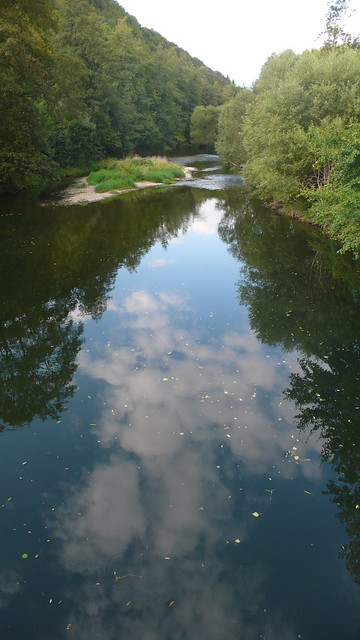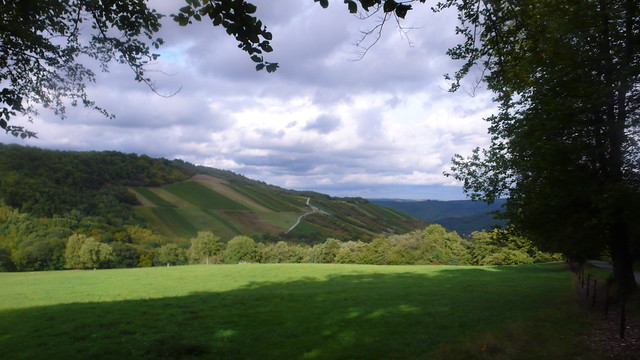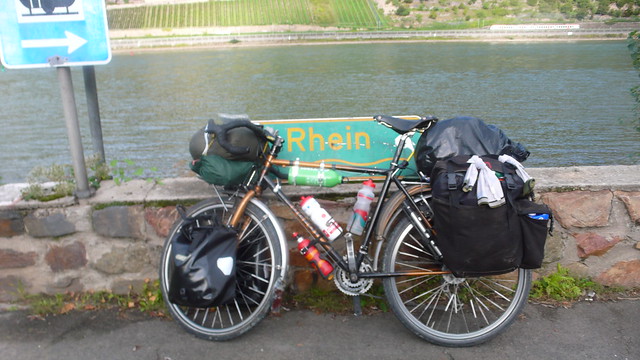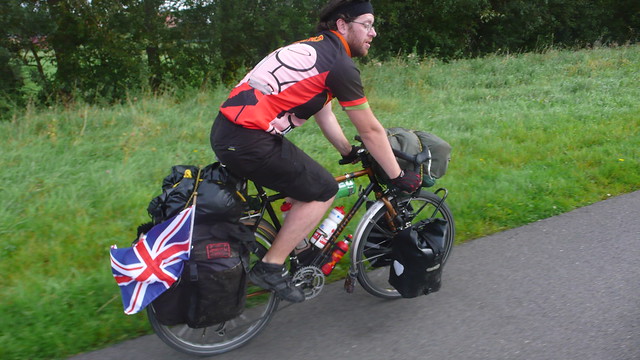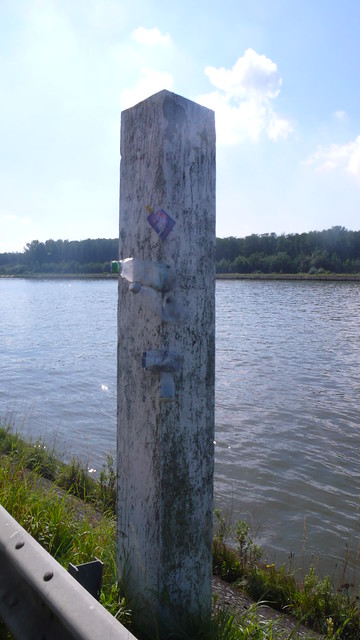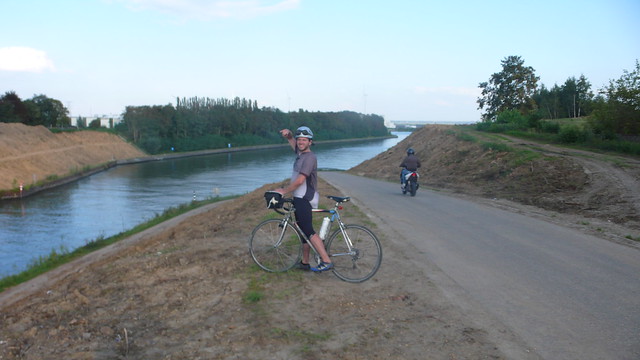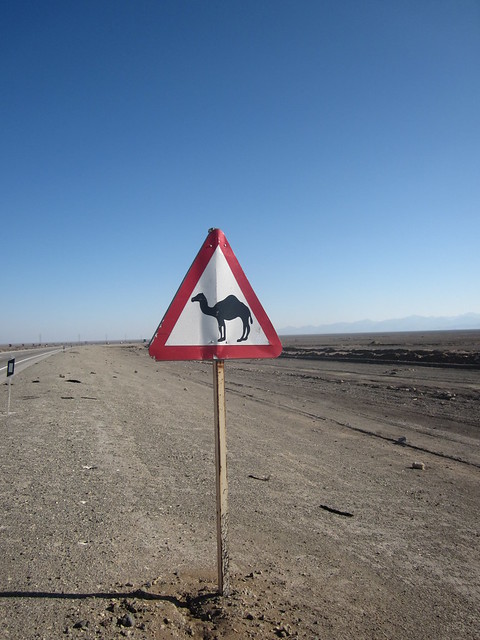
I'd always wanted to see the desert. It was one of the things I'd harp on about to anyone who asked, and it's one of the things Iranians are proud of - theirs is a land of contrasts, they'll tell you, high mountains and tropical coastlines, howling deserts and groping jungles. Actually, I've seen plenty of photos of the "jungle" in the Caspian basin, and it doesn't look any more daunting than British woodlands - it's hardly the Darien Gap. It may be a translation difficulty, or characteristic exaggeration. But I digress.
Esfahan was a wonderful city, where I spent a few days to recover from the flu. I reckon I spent more time sleeping than sightseeing, but still, what a place. Mosques and squares and rambling bazaars and on top of the history, a great bustling sense of activity and possibility. Esfehan does suffer in one way from its success - the pervasive smog didn't half choke my delicate lungs, and I was there three days before I realized there were mountains around the city, hidden as they were behind the jaundiced fog. It'll always be yellow in my memories. It was the first Iranian city, though, that I enjoyed walking around - Zanjan and Khoy and Tabriz belong to the car, but in Esfehan it is still possible to wander as a pedestrian, which is my favorite way to explore cities.

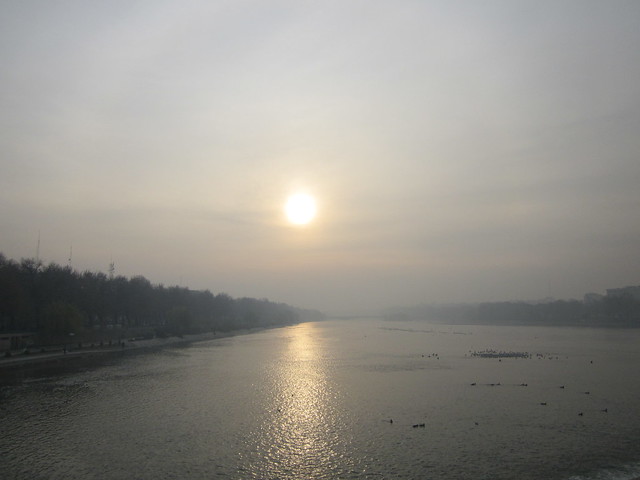
I still didn't feel great when I left, but the visa clock was ticking, so off I rode towards Yazd. Nice tailwind that day, and I soon found myself surrounded by...well, nothing, which is one of the things you look for in a desert. Apart from the road and the telegraph poles and power lines to either side of it, nothing. As well as nothingness, one of the things everyone knows about deserts is that they are cold at night, when the heat radiates away to the stars. The stars were spectacular when I was away from the towns and cities, though with the cold I was unwilling to linger long outside my tent, and in fact the first night away from Esfahan, I slept at Mohammad's homestay in the town of Toodeshk, which is a wonderfully evocative name, the eastern promise in the drawn out first vowel and the guttural finishing "shk" sound. Toodeshk had a very traditional air, mud brick buildings and narrow alleys and sand.
Mohammad also gave me some good tips about the next bit of the route: "it's uphill after Toodeshk, downhill to Naín, then flat to Yazd, don't camp too close to the mountains as there have been reports of wolves, and if you camp in the ruins at Now Gonbad, the old man who cooks the omelettes will come to your tent and try to homosexual you. If (!) you don't want this, wave your phone at him and shout 'police'! He'll leave you alone." There was more advice after that, but I mainly remembered the part about Iran's Uncle Monty, and I didn't camp at Now Gonbad.
Sina had arranged for me to stay with his friend Ali in Yazd, though there was a slight language barrier in that I can only speak a few words of Farsi and Ali only speaks a few phrases of English. Luckily we had Sina on speed dial as a translator, and I had an enjoyable afternoon soaking up the atmosphere in Yazd. Ali took me round the mosque and the bazaar and best of all, a meander through the ancient streets and alleys, where the desert winds have worn the sharp edges from the stone. There was also Dowlatabad Gardens and its amazing wind tower, an ancient form of air conditioning. An afternoon wasn't long enough, but I still felt the sands of time running out on my visa, so I had to say farewell to Ali's hospitality (which was as generous as ever - I had to put my foot down to stop him from emptying his own cupboards into my panniers) and get straight back on the road.
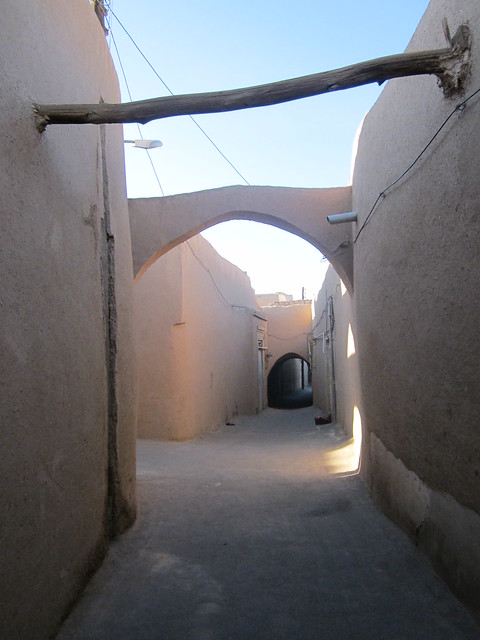
Now, Ali is a cycle tourist, and he had ridden from Yazd to Shiraz, so I checked out his photos and asked him about the route. He warned me about a few big hills, including one near Deh Shir, about 45 miles from Yazd. Something must have been lost in translation, as he didn't tell me that those 45 miles were ALL uphill. In my weakened condition, I came damn close to chucking my bike over the nearest hedge, except this was the desert and there were no hedges, and I wouldn't have had the strength anyway. I like hills and mountains more than most cyclists, I suspect, but I was not prepared for 45 bastard miles uphill. I spent the whole day not quite believing that it would keep going up. Even with a tailwind it was a brutal slog, and I gave it up at about 3.30 after 43 miles, and camped just off the road, behind a spoil heap.
Overnight, naturally enough, the wind changed direction to become a headwind. At least it was only another 3 or 4 miles to the summit, even if they were tough miles which took me 48 grumpy minutes. I scowled at an Iranian couple who'd stopped their car to take photos of the view, and then of me. I couldn't help smiling. They waved me down and fed me some welcome chocolate.
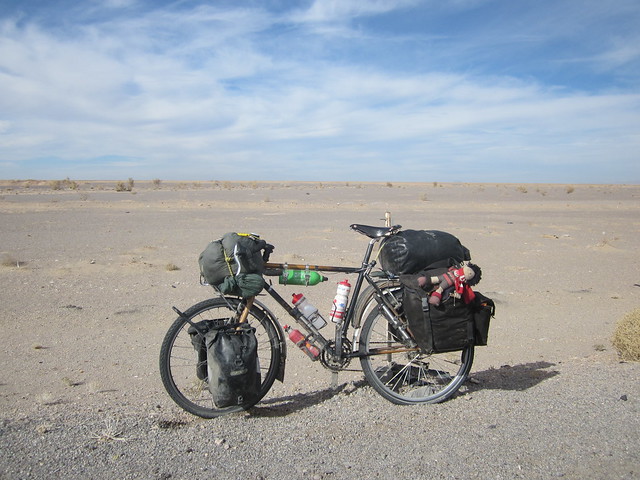
It was flat or downhill to Abarkuh, and the desert landscape was making a reappearance after my excursion over the mountains. I plugged away into the wind but I was disappointed with my slow progress, and starting to worry that I wouldn't have time to renew my visa in Shiraz, and to visit the Persian remains north of Shiraz.
I was thinking about this and letting myself fret as I rode south on the main Esfehan-Shiraz road. Yet another car beeped at me (as one in every three or four seems to) and, feeling bad-tempered, I flicked him the v's. Nobody in Iran knows what this means, so it makes me feel better without offending anyone. Except this time, the car stopped and pulled off the road about a hundred yards ahead.
When I got alongside the car, the driver was waving his flask at me and saying "Chai! Chai!" Well, I'm not one to pass up an opportunity for tea, so I said bale/yes, and in a whirlwind of activity Mahmud (which was his name) had laid out a cloth on the ground and a whole picnic of crisps, fruits and nuts, but sadly no tea, though he did provide the bizarre substitute of an effervescent vitamin C tablet in water. Mmm. He even tried to set up a water pipe, and generally fussed about like an English housewife who's just heard that the Queen's coming for tea. It was surreal, and wonderful.
I had to stop for the day not long after setting off again, as my legs had given up. I pulled up next to a wagon, hoping to blag some water from the driver so I could set up camp for the night. He didn't have any water, but he did offer me a lift - which I had been secretly hoping he would. I had absolutely no energy, and when I saw the size of the hill I would have had to go over, I knew I wouldn't regret that decision. It would have taken me until the next day to get over that bastard.
It also added another dimension to my journey, though the conversation (Mehmat spoke pretty good English) became a bit repetitive.
"Hey, got any photos of English girls?"
...
"Oh, you're going to Thailand? Beautiful girls there."
...
"So what do you think of Iranian girls?"
...
Etc. I told him he should come to the UK and I'll take him somewhere like the Bigg Market on a Saturday night.
He dropped me about 70 km on, at Pasargard, the first in a series of ancient Persian sites I wanted to visit. It was getting on so I camped up by the local fly tipping spot - it was dark, and I didn't realise it was the dump until morning. No harm done, though I started to realise that my fatigue was more than just an after effect of the flu - without going into too much detail, you didn't want to get caught between me and the toilet at the wrong time.
At Pasargad, I was the only visitor so early in the morning: the desert air was crisp and clear and the light was amazing. The tomb of Cyrus the great is the most impressive relic there, sited alone on the plain. Apparently it was originally surrounded by a pleasure garden, but on its own it has...presence.
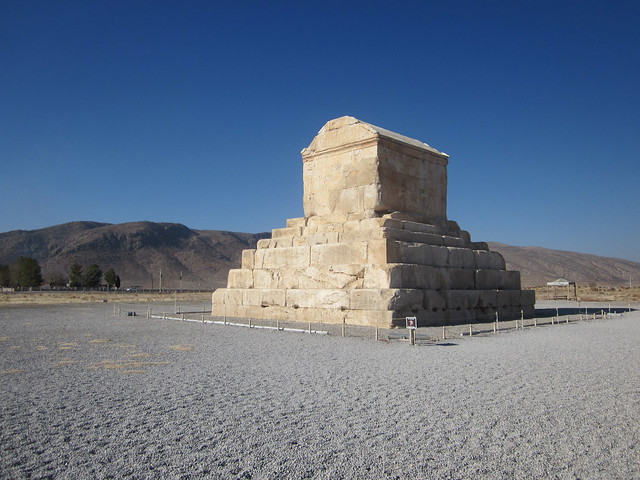
Still feeling knackered, I talked another wagon driver into giving me a lift to Persepolis. Like Mehmat, he refused any kind of payment, though his English was nearly as limited as my Farsi. He did, however, insist that I visit Naqsh-e-Rostam before Persepolis, and he was quite right to do so, as it is a powerful place. The Achamaenid kings' tombs are carved into a huge rocky escarpment, each tomb open to the elements so that the bones can be picked clean by vultures, in Zoroastrian tradition. I also met an English woman and her Iranian family; proving yet again that it's a small world after all, she told me she was born in Darlington as soon as I said that's where I'm from. She also reminded me that it was Christmas day - I suppose it's no wonder that I forgot, as spending the day amongst the relics of a civilization which rose and fell before the birth of Christ is about as un-Christmassy as you can get.
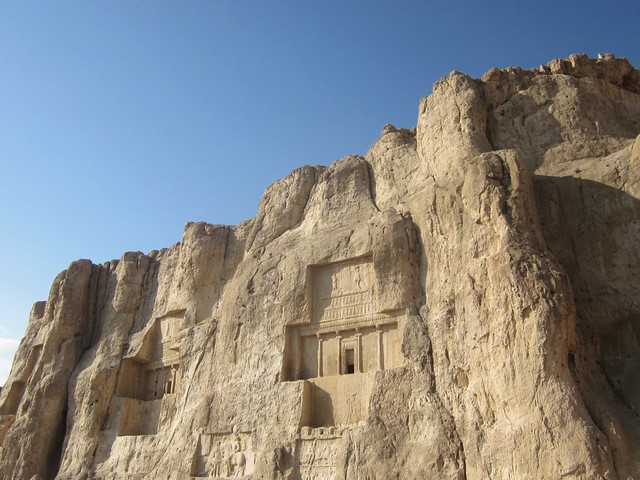
My last Achamaenid visit was the daddy - Persepolis, or Takht-e-Jamshid as it's known locally. I'm not likely to forget this, as there were loudspeakers at the site blasting out a commentary from some local ham, and the words "Takht-e-Jamshid" occurred at least once in every sentence.
It had a very different atmosphere to the stark dignity of Pasargad or the sun-scorched antiquity of Naqsh-e-Rostam. Persepolis is big business, though refreshingly it's only 5,000 rials to enter (about 30p). But the huge car park and the rows of businesses mean there's money there, though not so much in the middle of winter, even if I did find it warm. I also found it quite busy compared to the other sites. It must be dreadful in high season.
There's no denying the scale of Persepolis, though. You climb up the hill behind the city and you can look back over the pillars and arches and try to imagine it as a place of wealth and power, the capital of an empire that stretched from India to central Europe. I even managed to tune out the commentary for a bit.
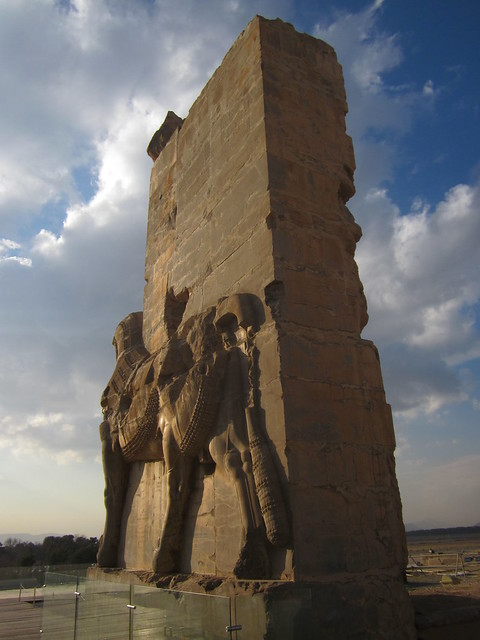
I haggled and earned myself quite a cheap rate at the on-site hotel (proximity of a toilet was quite important to me at that moment) by using my natural charm and the manager's confusion about the difference between dollars, tomans and rials. With so many noughts in the currency, even Iranians sometimes get confused, and for once it worked to my advantage.
The next day I rode down to Shiraz, where I renewed my visa easily, which both relieved and annoyed me. I didn't have to dash to the nearest border in the two days before it expired, but I could probably have relaxed a bit more and seen more of Iran. Ah well. I put that behind me and tried to find a hotel in Shiraz where I could rest up for a few days.
The first hotel (Ferdowsi Hotel on Zand) was not the haven of rest I craved. The staff were sort of friendly in a grinning-inanely kind of way, but quite useless. They spent ten minutes asking me questions when I'd explained that I was tired and wanted to go my room. I asked for the shower and they pointed me to the toilet, so I had to go back and get the shower key, then they asked me for my passport even though I'd handed it over ten minutes before. Useless. It was also too loud in my room adjoining the courtyard, and the centerpiece of the evening was spanging cockroaches with my pan, then watching the local ants guzzle the remains. I moved hotel the next morning, to the simple, cheap, friendly and clean Zand Hotel. That was my base for an abortive exploration of Shiraz. After Persepolis and the rest, it was always going to be a let-down.
